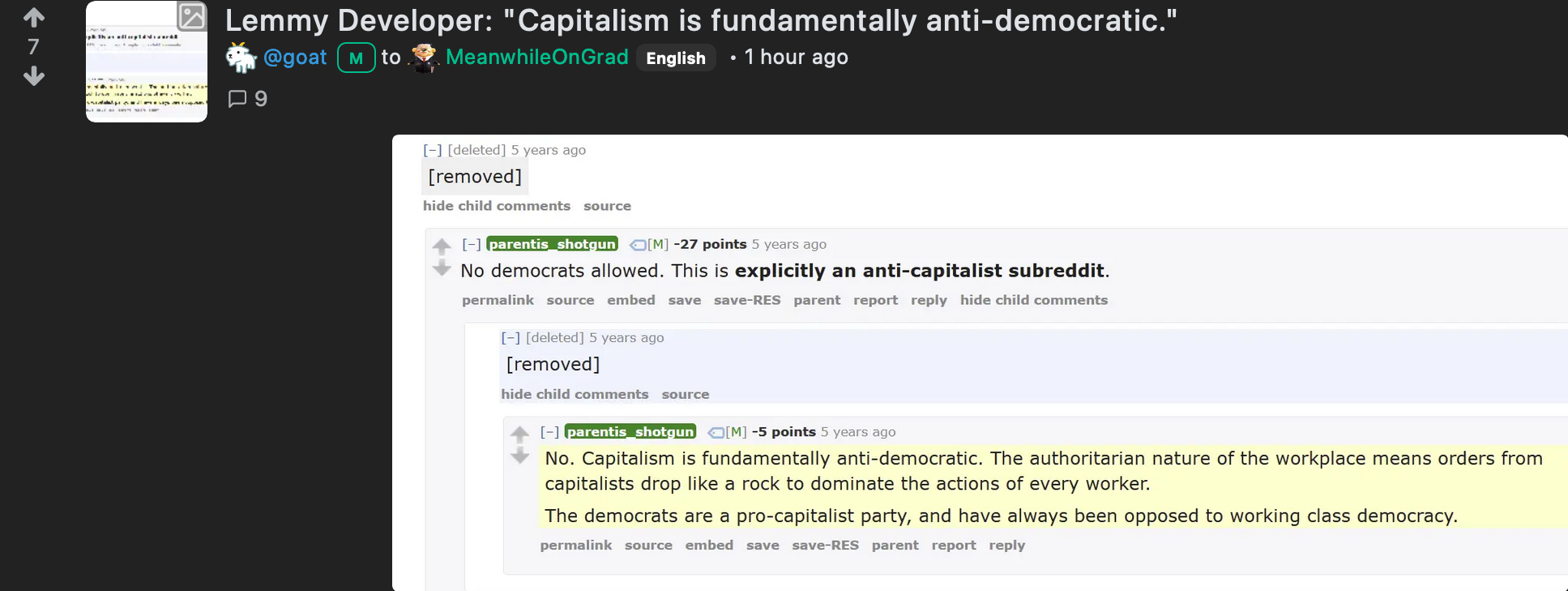the_dunk_tank
It's the dunk tank.
This is where you come to post big-brained hot takes by chuds, libs, or even fellow leftists, and tear them to itty-bitty pieces with precision dunkstrikes.
Rule 1: All posts must include links to the subject matter, and no identifying information should be redacted.
Rule 2: If your source is a reactionary website, please use archive.is instead of linking directly.
Rule 3: No sectarianism.
Rule 4: TERF/SWERFs Not Welcome
Rule 5: No ableism of any kind (that includes stuff like libt*rd)
Rule 6: Do not post fellow hexbears.
Rule 7: Do not individually target other instances' admins or moderators.
Rule 8: The subject of a post cannot be low hanging fruit, that is comments/posts made by a private person that have low amount of upvotes/likes/views. Comments/Posts made on other instances that are accessible from hexbear are an exception to this. Posts that do not meet this requirement can be posted to !shitreactionariessay@lemmygrad.ml
Rule 9: if you post ironic rage bait im going to make a personal visit to your house to make sure you never make this mistake again
view the rest of the comments


Albert Einstein agreed and he seemed like a pretty smart dude:
famous tankie, Albert Einstein.
Dude loved Lenin and Stalin.
Stalin, really? But I thought he would be critical of Stalin, considering he thought Lenin's policies were unadvisable but necessary as a last resort, and he supports Lenin, so I thought Einstein wouldn't be too keen on Stalin but just rather critically supportive...
Edit: I edited my comments for clarification
No. Einstein was a lifelong defender of the Bolsheviks, and stood by Stalin even during and after the purges. The man staunchly supported USSR even when it became controversial post-ww2. He is the highest profile advocate of the USSR during ww2.
Given that he was a socialist before ww2 began and that the USSR rescued jews it actually shouldn't be that surprising that a jew who lived in germany during the peak of antisemitism before the war and escaped the nazis would be quite supportive of Stalin.
We don't know too much about his opinion of lenin's policies, he was vague about it. I prefer to think he sees Lenin's approach as unadvisable because of how incredibly difficult it was and how Lenin spent his entire life on it, sacrificing himself, and arguably cut his life short. Most people think the wound he took in the attempted assassination probably contributed to his early death.